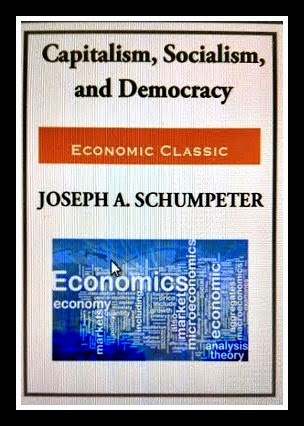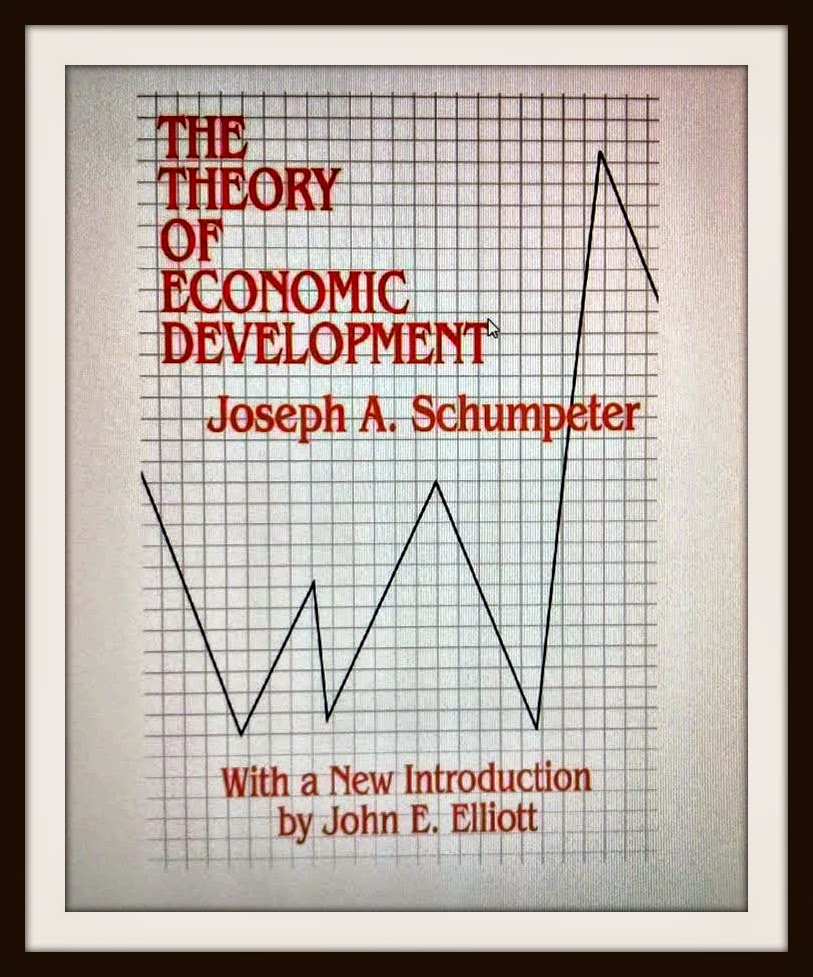Joseph Schumpeter’s book Capitalism, Socialism and
Democracy brings forward some interesting concepts pertaining to the nature of economics
and governmental forms. He believes that Socialism will eventually outstrip Capitalism
as a system once the owners of production reject the capitalistic system that made
them successful (1).
The early period pure competitive
methods that fostered growth will become stagnated as the system fails to
change.
The book seeks to reconcile in part the differences
between democracy and capitalism. The best method is the rule of people to
create collective governance of society. However, as capitalism grows the
average citizen doesn’t have much say in day-to-day politics and becomes more
of a support to the legitimacy of others (2).
To this point it is important to understand that the
very core nature of society is to allow some to move forward while others to
stay in followership. Difficulties can arise when those with the basic skills
and abilities are inherently locked from moving up the social ladder thereby creating
two separate societies of existence. As the divide between the two societies
grow so does the problems.
Democracy works when people have sufficient power to
vote out and demand changes by elected officials (3).
The official becomes a type of business
owner that seeks to find customers to his/her leadership focus. When customers
are serviced properly they will re-elect their officials thereby creating
opportunities for proper societal alignment.
The biggest fear capitalism faces is, “the very success of capitalist enterprise
paradoxically tends to impair the prestige or social weight of the class
primarily associated with it [i.e., the entrepreneurial class] and that the
giant unit of control [i.e., large corporations] tends to oust the bourgeoisie
from the functions to which it owed that social weight”.
Larger entities will naturally write the rules that
lead to the destruction or damage of small business that foster economic freedoms.
Without the developing of new and revolving businesses, within the circular creative
destruction explained by Schumpeter, the nation will turn to socialism.
There is much to agree and disagree with in the
book. It should be remembered that the book was produced in the 1930’s when
world wars were raging, capitalism was threatened, and change was rampant.
To further Schumpeter’s ideas it is beneficial to
include a couple of concepts beyond this book that lead to the success of
Capitalism and its governing form called Democracy.
-Upward Social
Movement: It is important to foster small business and upward financial
movement to encourage motivation in society as well as the development of new
ideas and concepts. New businesses and intra or inter-organizational entrepreneurial
activities lead to greater innovative and economic growth.
-Open
Dialogue and Information: Democracy requires the voting in and voting out
of governmental representatives through proper information and open dialogue.
Information should be free flowing, provide alternative points of view, and
foster critical thinking.
-Enhanced
Legal Structures: All legal structures should enhance the population and
encourage upward social movement. By encouraging greater human advancement it
lowers the incentives of crime and costs of dealing with that crime. Legal
structures should not unnecessarily protect monopolies or unjustly restrict
human advancement.
-Political Aeration:
Allowing new members to enter the political sphere offers the opportunity for
continuous adjustment to the will of the people as well as better
decision-making matrices among leaders. Stagnated political networks damage
long-term development by failing to adjust to world realities.

